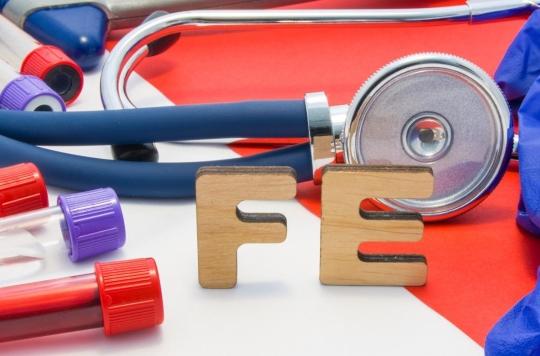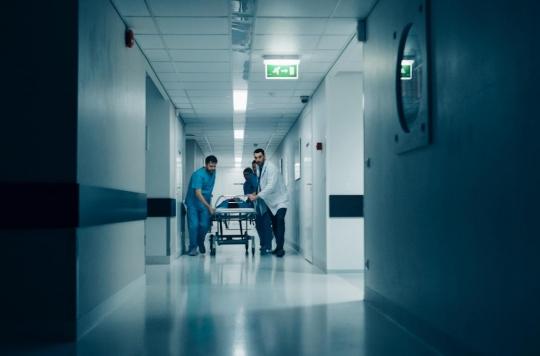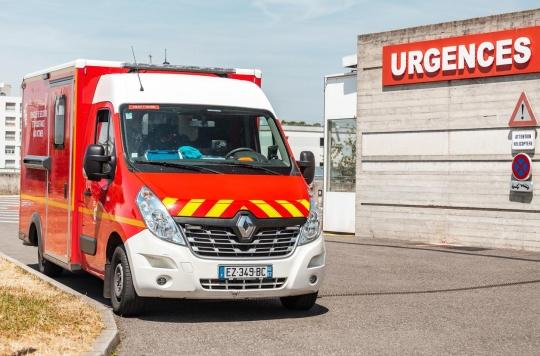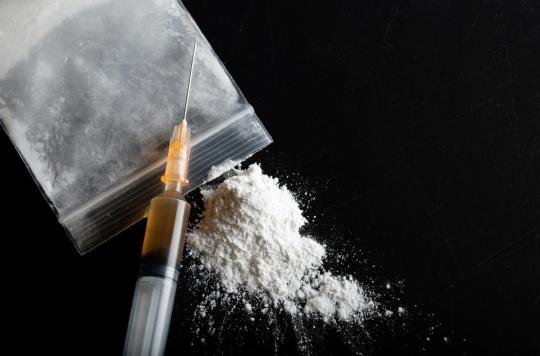A 56-year-old woman operated four days earlier for the gallbladder in Lunéville (Meurthe-et-Moselle), died in the emergency room. The Samu had refused to move.
In the following weeks, two complaints were filed for non-assistance to a person in danger with the Mulhouse prosecutor’s office (Haut-Rhin), after two incorrect diagnoses. One involved a man who had called Samu un 2016 complaining of severe chest pain. At the time, the operator advised him to take paracetamol. Ignoring these recommendations, he went to the Diaconate clinic, where he was immediately operated on. And for good reason: he had a myocardial infarction.
The second complaint concerned the case of a man who also called the Samu to complain of pain in his thigh. His interlocutor identified a phlebitis, it was up to him not to move and directed him to SOS Médecins. Feeling his condition deteriorating, the patient goes himself, on foot, to a medical center. Too late: the doctors diagnose phlebitis but also a serious pulmonary embolism. The 50-year-old died three weeks later.
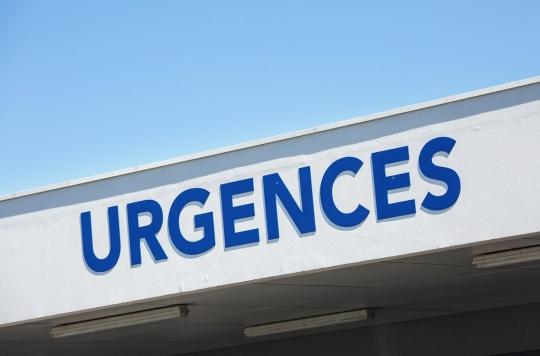
The facts date back to March 14, but were only revealed this Friday by The Republican East : Maryse Rabah-Otmani, 56-year-old had her gallbladder removed at the clinic Jeanne-d’Arc de Lunéville (Meurthe-et-Moselle) and suffered severe pain the day after leaving the establishment. Despite the prescription of a painkiller, the patient’s condition worsened and the pain persisted.
A complaint against X and an investigation for manslaughter
Four days after the intervention, relatives of Maryse Rabah-Otmani call the Samu. The operator refuses to send a vehicle. It is therefore up to a relative to drive her to the emergency room which is 30 minutes away by car. On the way, the fiftieth-year-old loses consciousness – we do not know for the moment if her heart stopped beating at this moment. In the emergency room, she is taken care of by a hospital team and the firefighters, who give her a cardiac massage. Nothing happened, Maryse Rabah-Otmani died. His family filed a complaint against X and an investigation for manslaughter was sent to the Nancy judicial police.
The Naomi Musanga case
These facts recall the case of Naomi Musanga, who, mocked by an SAMU operator when she called for help and said she was going to “die”, died a few hours later. During this exchange, the SAMU operator had been contemptuous, mocking and had hung up too quickly without sending an ambulance to the young girl. Naomi Musenga had to wait five hours to be taken care of by SOS Médecins, who finally sent her to hospital. She died there on December 29, 2017, victim of a heart attack, due to “paracetamol intoxication”. The media coverage of this case encouraged many people to testify.
In the following weeks, two complaints were filed for non-assistance to a person in danger with the Mulhouse prosecutor’s office (Haut-Rhin), after two incorrect diagnoses. One involved a man who had called Samu un 2016 complaining of severe chest pain. At the time, the operator advised him to take paracetamol. Ignoring these recommendations, he went to the Diaconate clinic, where he was immediately operated on. And for good reason: he had a myocardial infarction.
The second complaint concerned the case of a man who also called the Samu to complain of pain in his thigh. His interlocutor identified a phlebitis, it was up to him not to move and directed him to SOS Médecins. Feeling his condition deteriorating, the patient goes himself, on foot, to a medical center. Too late: the doctors diagnose phlebitis but also a serious pulmonary embolism. The 50-year-old died three weeks later.
Better training for telephone operators
Faced with this succession of tragedies, the Minister of Health Agnès Buzyn had asked for a “certification” of the Samu. “Today there are a lot of cases that go up: emergency cases, cases related to Samu and cases related to the care of firefighters, also subject to the same pressure and the same risk”, had- she said in June 2018.
The minister considered that these cases demonstrate “that there is room for improvement in their practices, in particular a harmonization of procedures, better training of people who answer the telephone” and “quality assurance”. And to continue: “Very few Samu have quality assurance, but it is a deeply risky activity (…) so it must be subject to some form of accreditation, certification” and “it will have to be very quickly set up on the territory, from this summer”.








